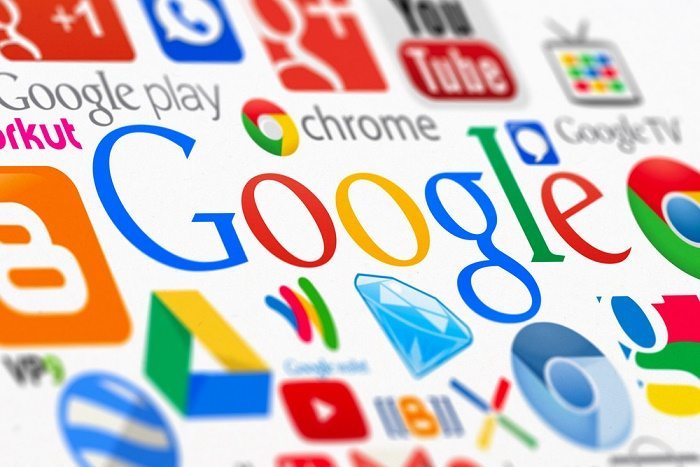Google, AdBlade Bar Abortion Clinic From Advertising
Abortion care services continue to be stonewalled by some of the web's most visited sites, as these Internet giants charge that abortion is not a family friendly topic.

Abortion care services continue to be stonewalled by some of the web’s most visited sites, as these Internet giants charge that abortion is not a family friendly topic.
The refusal to use abortion-related ads continues even as providers push to remove the stigma from the procedure with unapologetic online advertisements.
About half of women in the United States will have an unintended pregnancy by the age of 45, and almost a third of those pregnancies will end in abortion, a procedure that’s far safer than childbirth.
Only 40 percent of Americans say they spoke to someone else about their abortion experience, according to a recent Vox survey.
But those who’ve had abortions aren’t the only people who won’t use the A-word. In May, Rewire reported on a series of abortion-related video advertisements that were rejected by Google and Hulu on the grounds that the topic is “non family safe” and unsuitable for the millions of people who view the companies’ websites.
Google this year rejected an abortion clinic’s ads on similar grounds.
That clinic is Carafem, one of the D.C. area’s newest abortion centers. The clinic has made a name for itself as a “spa-like” facility because of its wood floors reminiscent of high-end salons and the tea and bathrobes given to clients as they prepare for their abortions.
“There’s a myth that abortions are provided in lonely and frightening places,” Melissa Grant, Carafem vice president, told Rewire. “Visiting a physician’s office produces a lot of anxiety with people. We are intensely aware of that.”
That unabashed approach to providing abortion services extends well beyond its interior design to its advertising, which Grant says is a crucial aspect of the clinic’s larger mission to break down the silence and taboo surrounding the procedure.
“There’s a lot to overcome related to anxiety and stigma,” Grant told Rewire. “Speaking unapologetically that we provide abortion in our advertising was a key part of that goal.”
Carafem’s ads certainly are frank. Plastered in subway stations and bus stops across the D.C. area, the ads all read, “Abortion. Yeah, we do that,” over a bright pink background and the text, “Here for you. Always. 24/7.”
Those ads were also submitted to Google Display, which runs video and display ads on third-party sites as well as on YouTube, Google Search, and AdBlade, which publishes ads on sites owned by the likes of Fox News, the Hearst Corporation, and McClatchy.
Both companies rejected Carafem’s ads, although Google ran them for two weeks before finally rejecting them, according to clinic staff. In an email to the clinic, a Google ad representative explained that abortion ads are allowed in some countries, but even then are restricted as “non-family safe” ads, meaning they will only appear in Google Search and never via Google Display.
A Google website describing the company’s health care related advertising policies lists the countries in which abortion ads are altogether barred. The United States is not one of them. Abortion is not listed as an example of “non-family safe” advertising, described by Google as including services like strip clubs, sex toys, and plastic surgery focused on genitalia.
In an email to Rewire, a Google spokesperson reiterated what had been communicated to Carafem, saying that the company allows “ads for reproductive health, including information about abortion, on search ads on Google and on video ads on YouTube through direct buys. We don’t allow ads for abortion information to run on third-party publisher sites through Google Display Network.”
AdBlade did not provide comment to Rewire on its ad policies.
An AdBlade spokesperson told Carafem in an email that the company wouldn’t run the ads “due to the sensitivity of the topic.”
The company’s general policies webpage lists the types of ads that are prohibited and restricted, among them, overly sexual or grotesque images, gambling and betting services, and “adult” advertisers. Neither abortion nor any other medical procedure is listed.
A reluctance to run ads mentioning abortion and other reproductive and sexual health issues is not reserved for Google and AdBlade. In 2014, four companies were barred from advertising on Twitter because their ads discussed sexual health issues.
Two of those were condom companies, one was an “online birth control support network,” and the other was an STD education organization.
Grant said that while she doesn’t consider it an act of censorship, the Carafem staff thinks it’s odd that the ads were considered too “adult” and rejected.
“Our advertising is not flippant or outlandish. The only thing that’s innovative is the way we’re talking about abortion,” she said. “We’re afraid to speak outwardly that abortion is a service, the way we talk about mammograms or whatever else. By its non-discussion, it’s called out as different. Abortion is not something to be embarrassed about. If a woman can’t see information about a basic medical procedure that she needs, there’s something wrong.”
